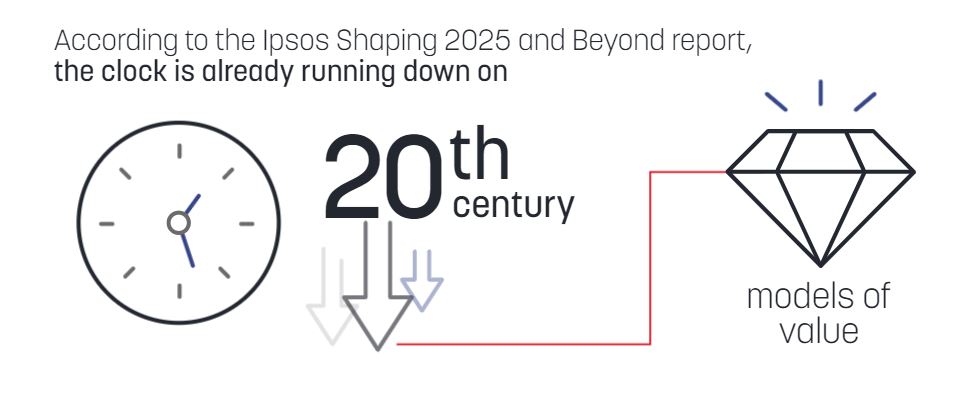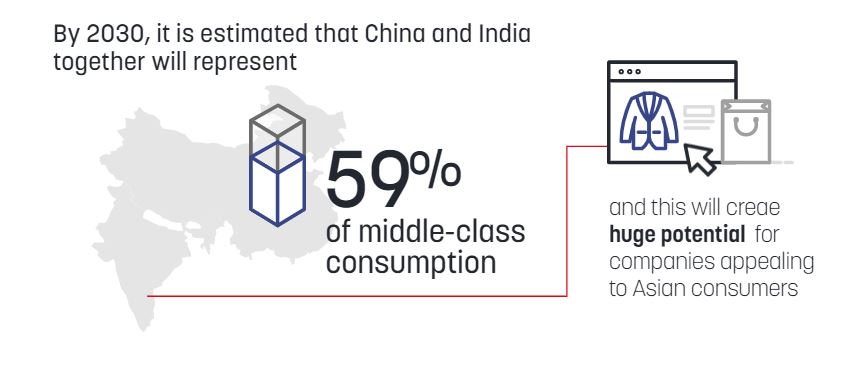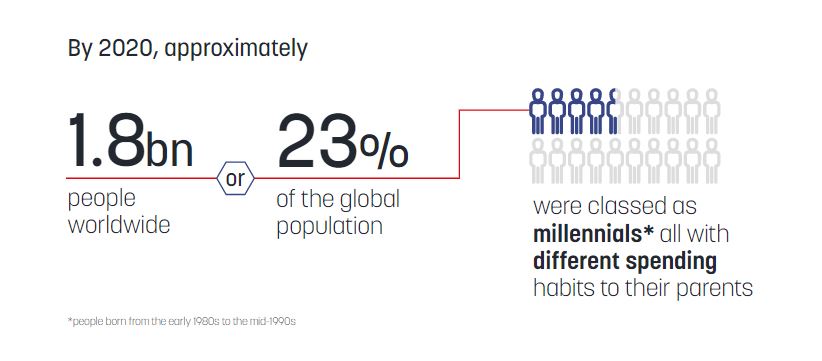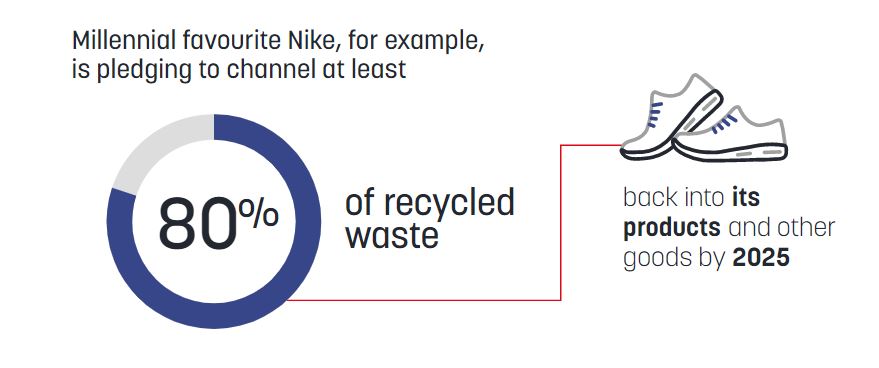In partnership with Financial Times
The future of wealth
How changing demographics are transforming where our money goes
The dynamics of markets and society are changing rapidly. World events and subsequent innovation are disrupting all sectors in ways that almost defy prediction. We’re also seeing huge shifts in demographics, technology, the environment and social values.
All of this is changing the way we spend, and will have a massive impact on our future society, technology and planet.

With growth no longer a given, and fragile supply chains tested and found wanting. It predicts the next three to five years will see the start of a greater shift in power dynamics than the world has seen in the past 50 years. This is supported by reports that the initial wave of Covid-19 generated five years' worth of consumer and business digital behavioural change in just eight weeks.
The pandemic has shone a light on the fragility of the world’s medical supply chains, showing that there is a real need to invest more in healthcare infrastructure. Biotech has clearly come into its own and so too, has the power of information technology.
"People are usually afraid of change because they fear the unknown"
Yuval Noah Harari
Author of Homo Deus: a Brief History of Tomorrow

Future Society
Automation and digitalisation transformations aside, the age of the average consumer is changing, and this is reshaping spending in certain sectors. Older households are growing in number, and their spending power is being flexed in areas of health and wellbeing. This has huge implications for the healthcare sector, as the bulk of health-related spending takes place in old age.
We also know that consumption is shifting geographically.

There has been a huge transformation in energy generation, driven in part by computing – in particular, advances in semiconductors. This, in turn, is driven by investment. As emissions policies are implemented, we'll see low-carbon technology markets grow, technologies improve and the cost of future emission reductions decline. There is huge innovation in solar energy, and this is driving down the cost of producing green energy.
In contrast with the spending priorities of the older generation, there is a shift in values among millennials.

For example, millennials prioritise social responsibility and environmental friendliness more, spend more on certain goods such as coffee and taxi services, yet spend less on travel and pharmaceuticals.
Future Planet
“Millennials have different values, and they are more concerned about the environment and climate change,” says Matarranz. This again means that investment priorities are changing, as reflected in initiatives such as the Green Recovery Challenge Fund and the European Union’s Next Generation EU (NGEU) project. This scenario is extremely positive in terms of value creation opportunities for young companies. It’s also a key driver for the circular economy, and an incentive for the manufacturing of products that are not designed for waste.
It’s quite likely that, in time, every product we buy will have a "circularity score", as customers become increasingly concerned about the impact of a product beyond its life cycle.

This was not in the equation before, and those companies who find better solutions and connect with customers on circularity are going to have much higher growth opportunities. A recent EU policy paper suggests that transitioning to a circular economy would support the EU’s efforts to reach climate neutrality by 2050 – a key priority for millennial consumers.
Future Technology
Of course, all of this is enabled by technological advances, especially in the area of artificial intelligence. Thanks to computing power, accelerated by quantum computing and new processors, we're seeing compounding growth opportunities. We also have hugely available information, owing to big data and increasingly sophisticated algorithms.
Parallel to this is the Internet of Things, allowing the processing of even more data through our cars and smartphones. In turn, these technologies are merging with our day-to-day lives, driving how we behave, what we consume, how we eat and exercise and how we seek and receive healthcare interventions.
There’s no doubt we are seeing very important changes in consumer consumption. People of all ages are exhibiting more sustainable consumer behaviours; Deloitte found that 43 per cent of consumers are actively choosing brands according to their environmental value. The products that we buy, how we buy them and the services that we value most are changing dramatically. Established brands have to be extremely forward-looking and innovative in their customer interactions, and those that are will reap the growth benefits.
“In this age of optimum client journeys and enhanced customer experiences, it’s a very good time to be a consumer,” says Matarranz. "There’s no doubt that businesses, governments and societies face some important decisions about strategies to get through the next five years, and the changing consumer will be at the heart of these decisions.”



